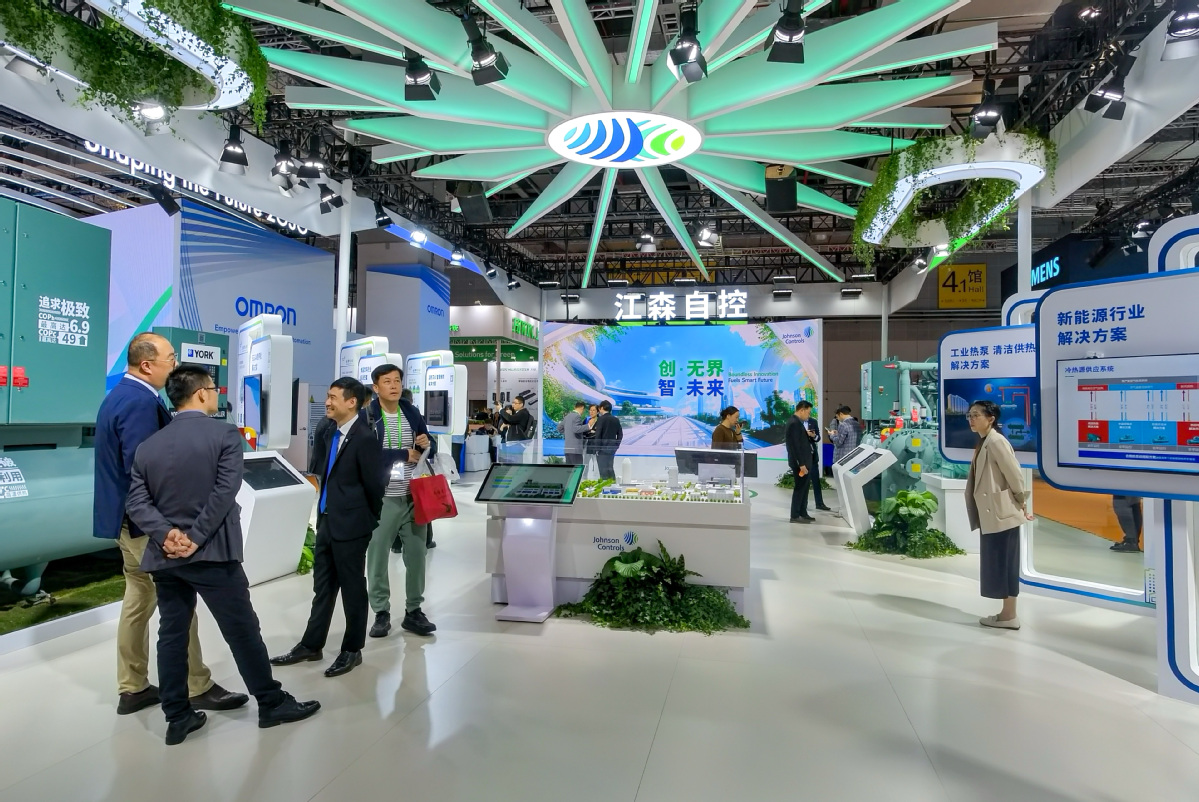US-based Johnson Controls: China remains critical market
Company sees growth chances from digital transformation, green transition


United States-based smart building solutions provider Johnson Controls has reiterated its long-term commitment to China, seeing rising growth opportunities from the country's ongoing efforts to drive digital transformation and foster green, sustainable growth.
"China has long been a critical market for us," said Anu Rathninde, president of Johnson Controls Asia-Pacific. "The scale of the market, the speed of technological development, and the abundant talent make it a unique environment for growth and innovation."
The company, which has operated in China for around three decades, continues to grow its footprint in the market, boasting 10 manufacturing plants, three research and development centers, and a workforce of over 8,000 people across 49 locations in China.
Rathninde said Johnson Controls' expansion in China has been aided by the country's ongoing efforts to expand high-standard opening-up.
He highlighted recent policy measures, such as the removal of restrictions on foreign investment in the manufacturing sector and the relaxation of visa policies, which have reinforced the country's appeal as an attractive destination for foreign companies.
Indeed, Johnson Controls has leveraged China's rapid digital transformation to develop and deploy innovative smart building solutions.
"Digital transformation is happening faster in China than elsewhere, and we are deeply involved in making buildings smarter, healthier, and more sustainable," Rathninde said.
"For densely populated cities like Shanghai and Beijing, which have a lot of old buildings, the opportunity lies in retrofitting and upgrading infrastructure to reduce energy consumption and carbon emissions," he added.
Johnson Controls has introduced a range of energy-efficient solutions aimed at addressing the carbon footprint of China's building stock.
Rathninde said that "40 percent of the carbon emissions are coming from the buildings, and 35 percent of the energy is used in the buildings", thus upgrading existing structures with advanced equipment — such as energy-efficient systems and digitally connected platforms — is crucial for meeting China's goals of peaking carbon emissions before 2030 and achieving carbon neutrality before 2060.
In line with its commitment to sustainability, Johnson Controls has increasingly focused on localizing its operations in China, developing products and solutions tailored to the unique needs of the market.
Rathninde pointed to the company's decision to move its Asia-Pacific headquarters to Shanghai in 2017 as a testament to the importance of the region.
"China is not just a low-cost labor market anymore. It's a technology and innovation powerhouse," he said. "We see huge growth potential, not just in scale, but in quality and talent. Every year, China produces a large number of skilled engineers, and the country is a leader in AI research. This makes China an ideal base for developing solutions for the future."
Rathninde's message is clear: the company remains committed to China's future and sees the country as a vital part of its global growth strategy. "We've grown with China, and we look forward to continuing this partnership for the next 30 years," he said.




































